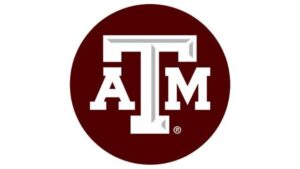Courtesy of Vital Record
BRYAN-COLLEGE STATION, May 31, 2024 — A researcher with the Texas A&M University School of Public Health has been awarded $780,250 to extend her advocacy work with Chinese American families that have children with developmental disabilities into the Houston metroplex and the seven-county Brazos Valley region of Texas, about 90 miles northwest of Houston.
Developmental disabilities are characterized by physical and intellectual impairment, including language use and/or behavioral functioning, as seen in conditions such as attention-deficit/hyperactivity disorder, autism spectrum disorder, cerebral palsy and Down syndrome. They emerge during a person’s development, are often permanent and may affect the individual’s ability to live independently.
“This project is important because with a population of more than 7 million, the Houston-Woodlands-Ford Bend metro area has the largest population of Chinese Americans with developmental disabilities in the state, and this cohort also is significantly underserved in the Brazos Valley,” said Lei-Shih “Lace” Chen, a professor of health behavior and the project’s principal investigator.
Chen noted that Asian Americans are the fastest-growing racial/ethnic group in the United States, with Chinese Americans being the largest Asian American subpopulation. In addition, more than 60 percent of this cohort are immigrants, and nearly 40 percent have limited English proficiency.
“As the mother of a child with developmental disabilities, I know the challenges that families face,” Chen said. “As an immigrant from Taiwan, which is deeply influenced by Chinese culture, I also know that traditional Chinese culture too often stigmatizes disabilities. In addition, the Chinese value of maintaining social harmony discourages advocacy of, or self-advocacy by, those affected.”
Chen will use the five-year grant from the Texas Council for Developmental Disabilities to provide culturally and linguistically appropriate support and advocacy/self-advocacy training for 250 Chinese Americans with developmental disabilities and their family members in the Houston-The Woodlands-Ford Bend metro area and also in the Brazos Valley. She received funding for a developmental disabilities-related project in the Brazos Valley last year.
Participants in the new project will learn how to integrate their new advocacy skills into their unique situations with help from Chinese American community health workers whom Chen and her team trained through a past project funded by the Cancer Prevention and Research Institute of Texas.
Finally, 20 Chinese Americans with developmental disabilities and their family members will be trained to become Texas Department of State Health Services-certified community health workers. Those who are certified will be pioneer advocate leaders who will actively lead and engage in community-based education and services for Chinese American communities with developmental disabilities.
This will be one of the first Mandarin-language programs in Texas to build advocacy and self-advocacy capacity for Chinese Americans with developmental disabilities and their family members, Chen said.
“I have heard many heartbreaking and frustrating stories of Chinese Americans who didn’t get help because they didn’t know where to find it or that they had rights to it,” Chen said. “I am very excited about this project and the opportunity for these voices finally to be heard.”
By Ann Kellett, Texas A&M University School of Public Health


